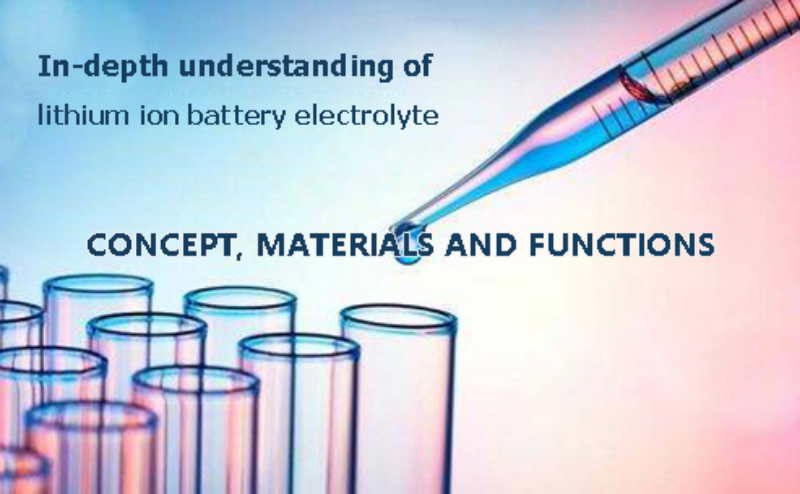
Main content:
- What chemicals are in a lithium-ion battery? What are battery electrolytes made of?
- What is a lithium ion battery electrolyte?
- Which electrolyte is used in a lithium-ion battery?
- Can you add electrolytes to a battery? Is there liquid in a lithium battery?
- What is the role of electrolytes in a lithium-ion battery?
- What is the electrolyte in a lithium iron phosphate battery?
- What are the two problems with using liquid electrolytes in lithium batteries?
- What is a safer electrolyte for lithium-ion batteries? What is a gel polymer electrolyte?
- How does the electrolyte affect lithium-ion batteries?
- Final words
From children's toys to cordless power tools to electric automobiles, products powered by lithium-ion batteries, including ternary lithium battery, are becoming increasingly commonplace in our daily lives. A battery's electrolyte is regarded to be one of the most important components. According to the state of the electrolyte, the lithium ion battery electrolyte can be divided into liquid electrolyte and solid-liquid composite electrolyte. The solid-liquid composite electrolyte is a gel electrolyte composed of a solid polymer and a liquid electrolyte.
Batteries perform better when lithium ions (Li+) freely flow between the anode and cathode surfaces in battery electrolytes. This is one of the battery's four primary components. Alternatively, "liquid electrolytes between the cathode and anode enhance the flow of lithium ions." An electrolyte is a mixture of lithium salt, organic solvent, and other ingredients. Taking a closer look into lithium ion battery electrolyte can help us learn more about them.
1.What chemicals are in a lithium-ion battery? What are battery electrolytes made of?
The main components of a lithium-ion battery are cathode materials, anode materials, separators and electrolytes. The widely used cathode material is lithium cobalt oxide, and the graphite-like carbon material is generally used as the anode. The electrolyte is usually a mixed organic solvent, and a common electrolyte is a salt called lithium hexafluorophosphate. An electrolyte solution of lithium salt is common in lithium-ion batteries.
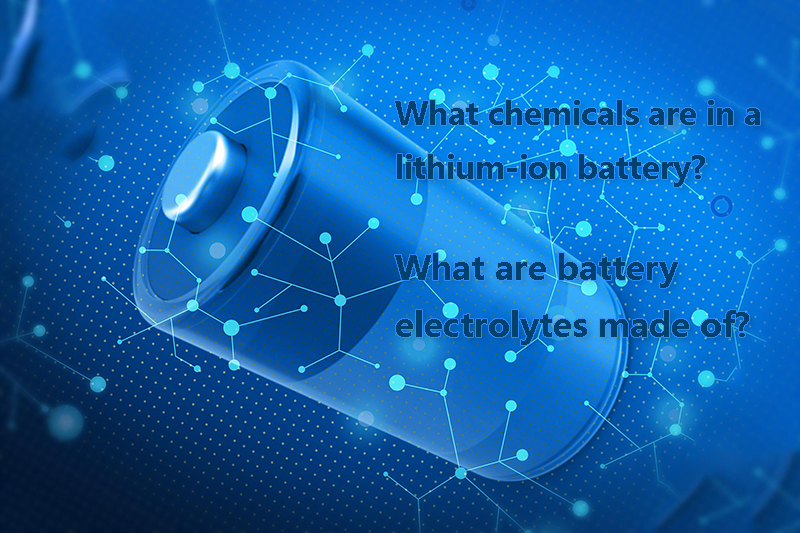
It is applied to the sheets in a very thin layer rather than as a pool of liquid. The graphite anode and cathode are held in place with two aluminum or copper foil sheets. Battery terminals' current collectors, which are little metal tabs that protrude, are touched by them. Simply glue the three pieces of material together in this manner and you've got a cell. Using a tube, cells can be rolled into cylinders.
2.What is a lithium ion battery electrolyte?
The lithium ion battery electrolyte is a compound that can conduct electricity by itself when dissolved in an aqueous solution or in a molten state. It’s an important part of the battery, which plays the role of transporting ions and conducting current between the cathode and anode. Ions from the cathode to the anode are transported by the electrolyte.
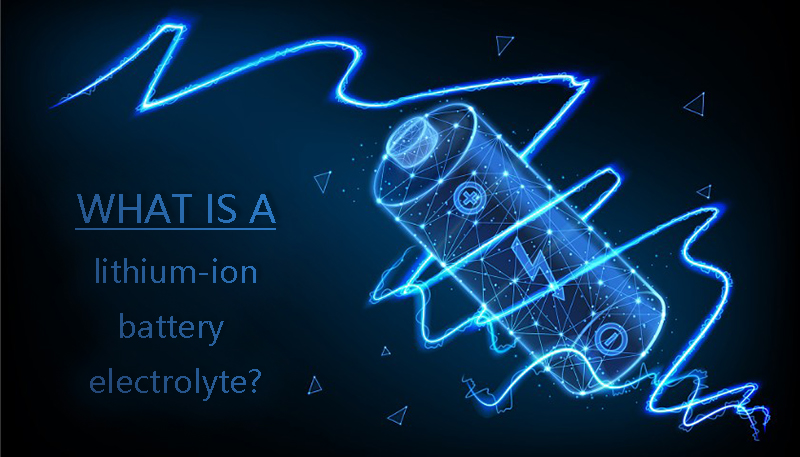
3.Which electrolyte is used in a lithium-ion battery?
Sulfuric acid is the most common electrolyte in lead-acid battery designs. Primary alkaline cells utilize potassium hydroxide as an electrolyte, and there are a substantial number of these cells. Electrolytes composing of lithium salts and organic solvents are generally used in lithium-ion batteries. In terms of phase, lithium ion battery electrolyte can be divided into three categories: liquid, solid and molten salt electrolytes. It is common to utilize lithium hexafluorophosphate (often referred to as LiPF6) as an electrolyte in lithium ions.
4.Can you add electrolytes to a battery? Is there liquid in a lithium battery?
For wet batteries like traditional lead acid batteries, the answer is yes. Wet cell battery levels should be checked on a regular basis to ensure optimum battery care. Despite the presence of sulfuric acid in the electrolyte, only distilled water should be used in the manufacture and maintenance of batteries.
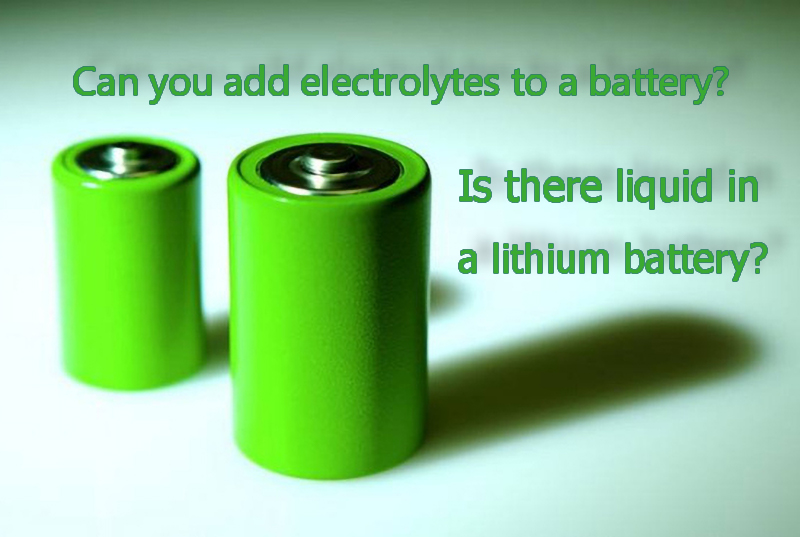
A wet cell battery will only need water if it is performing properly. Fully sealed maintenance-free batteries and non-off-gassing batteries both can't have electrolytes added to them. Lithium-ion batteries are maintenance-free after installation, as they do not require venting, which means that such batteries do not need to be watered.
5.What is the role of electrolytes in a lithium-ion battery?
Electrolyte is an important part of lithium-ion battery, not only transporting and conducting current in the cathode and anode, but also determining the working mechanism of the battery to a large extent, affecting the specific energy, safety performance, rate charge-discharge performance, cycle life and production cost of the battery.
6.What is the electrolyte in a lithium iron phosphate battery?
The electrolyte of lithium iron phosphate batteries is generally prepared from high-purity organic solvent, electrolyte lithium salt, necessary additives and other raw materials in a certain proportion under certain conditions. It is the guarantee for the lithium iron phosphate batteries to obtain the advantages of high voltage and high specific energy.
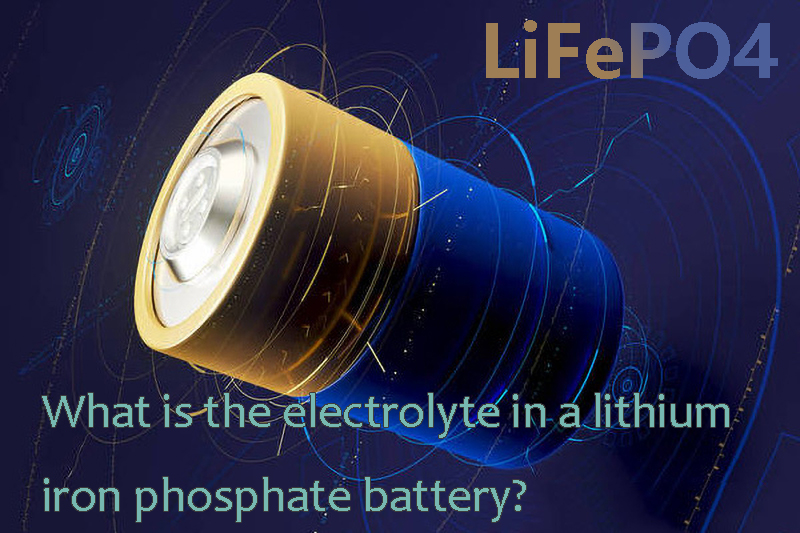
7.What are the two problems with using liquid electrolytes in lithium batteries?
The electrolyte used in lithium-ion batteries can dissolve, creating a thicker layer of SEI on the electrodes. This can cause a decrease in battery performance. It's especially true when the temperature rises above normal. Consequently, the optimal electrolyte content is of paramount importance. In addition, the application of liquid electrolytes in lithium ion batteries is costly.
Because the currently used organic electrolytes are mostly high-purity LiP6 and organic mixed solvents based on propylene carbonate, these reagents are expensive. However, new lithium-ion solid-state and gel electrolytes have emerged. Compared with traditional liquid electrolytes, they have shown many unique advantages, such as higher safety and no leakage.
8.What is a safer electrolyte for lithium-ion batteries? What is a gel polymer electrolyte?
At present, gel polymer electrolytes are an ideal material for the preparation of advanced lithium-ion batteries. The use of polymer electrolytes can avoid the leakage problem of traditional liquid lithium-ion batteries, improve the safety performance and energy density of the battery, and realize the advantages of thinning, lightweight and variable shape of the battery.
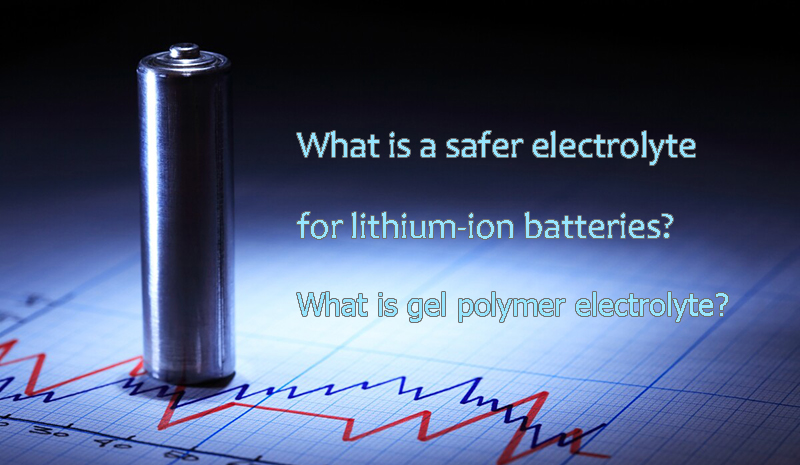
Polymer gel is a special state of matter between solid and liquid, which has some properties of solid and some properties of liquid. Gel polymer electrolytes can be formed by adding one or several plasticizers to solid polymer electrolytes, which exhibit high self-diffusion ability and electrical conductivity close to that of organic liquid electrolytes.
9.How does the electrolyte affect lithium-ion batteries?
In the continuous cycle process, due to the limitation of chemical stability and thermal stability, electrolytes will continue to decompose and volatilize. Long-term accumulation will lead to a reduction in the total amount of electrolytes and unable to fully infiltrate the anode and cathode materials, resulting in incomplete charge and discharge reaction, making a decrease in the actual capacity.
In addition, the electrolyte also contains a certain amount of water, which will chemically react with LiFP6 in the electrolyte to produce LiF and HF, which in turn destroys the SEI film, generating more LiF, causing LiF deposition, and continuously consuming active lithium ions, resulting in decreased battery cycle life.
10.Final words
The electrolyte is often overlooked, despite the fact that it is a critical part of all batteries. The electrolyte in your battery can, however, be maintained for a longer period of time provided you know how it works. We can now stop worrying about battery electrolytes, thanks to the gel electrolytes, which are currently the best choice for lithium ion battery electrolyte. The commercialized lipo battery is usually gel polymer electrolyte battery.
















